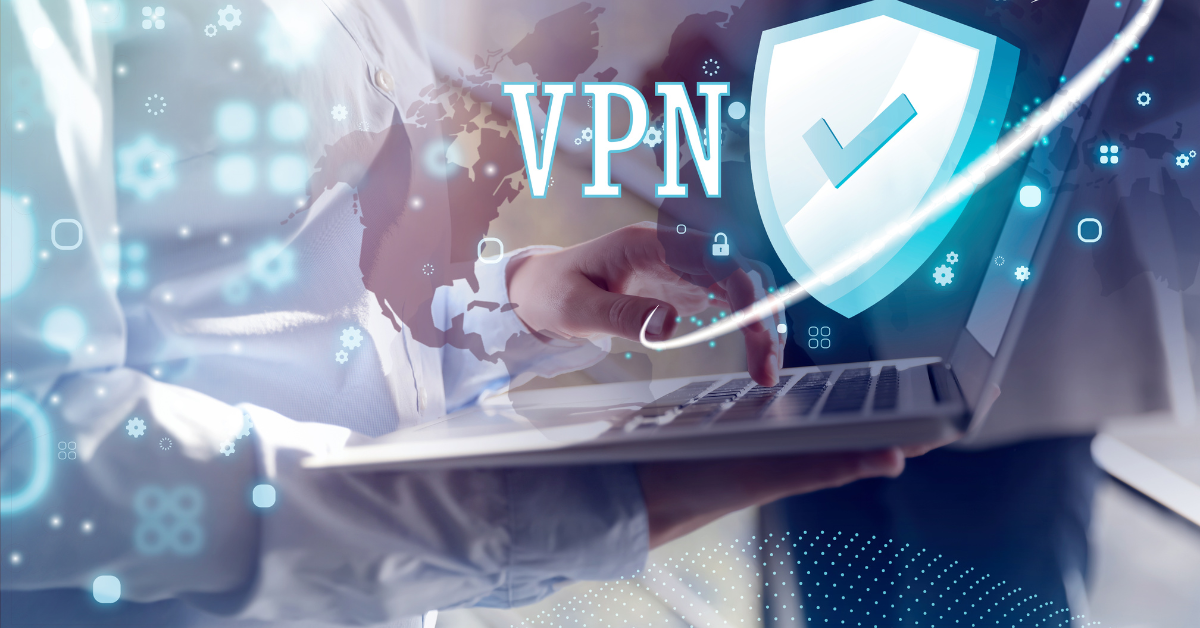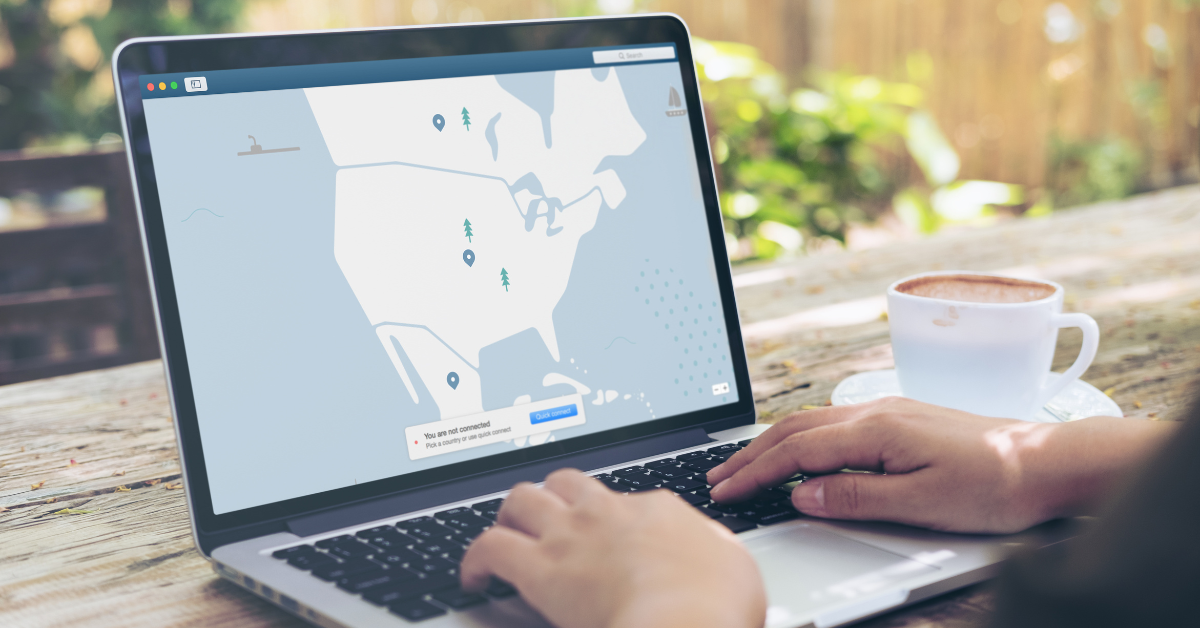Yes, VPNs encrypt data. When you use a VPN, your data is encrypted before it is transmitted over the internet. Encryption converts your data into a secure, unreadable format, protecting it from unauthorized access and ensuring that it remains confidential during transmission. This means that even if someone intercepts your data, they won’t be able to decipher it without the encryption key. VPNs play a crucial role in enhancing data privacy and security, making them a valuable tool for safeguarding sensitive information online.
In today’s interconnected world, data security and privacy have become paramount concerns. As cyber threats continue to evolve, individuals are seeking ways to protect their sensitive information online. One commonly suggested solution is the use of Virtual Private Networks (VPNs). However, there is often confusion surrounding the topic of data encryption and how VPNs play a role in safeguarding personal data.
The Basics of VPNs and Data Encryption
What is a Virtual Private Network (VPN)?
A Virtual Private Network, or VPN, is a technology that establishes a secure and private connection over a public network, such as the internet. It creates a virtual tunnel between the user’s device and the VPN server, encrypting the data transmitted between them.
How VPNs Work

- Tunneling: When you connect to a VPN, it encapsulates your data within an encrypted tunnel. This process ensures that your information remains secure and protected from potential eavesdroppers.
- Encryption: VPNs use encryption algorithms to scramble your data, making it unreadable to anyone who intercepts it. This encryption provides an additional layer of security, safeguarding your sensitive information from unauthorized access.
Understanding Data Encryption with VPNs
Data encryption is a fundamental concept in the realm of cybersecurity. When using a VPN, your data undergoes encryption before being transmitted over the internet. Let’s delve into the process of data encryption with VPNs and understand its significance.
How VPNs Encrypt Data?
When you connect to a VPN, the following steps occur to encrypt your data:
- Encryption Algorithm: VPNs employ robust encryption algorithms, such as AES (Advanced Encryption Standard), to convert your data into an unreadable format.
- Encryption Key: A unique encryption key is generated, which serves as the cryptographic “password” required to decipher the encrypted data. This key is securely exchanged between your device and the VPN server.
- Data Transmission: Once your data is encrypted, it is encapsulated within a secure tunnel and transmitted to the VPN server.
- Decryption at the Server: Upon reaching the VPN server, your encrypted data is decrypted using the encryption key. This process ensures that your data remains protected throughout its journey.
The Importance of Data Encryption
Data encryption through VPNs holds several significant advantages:
- Enhanced Privacy: By encrypting your data, VPNs shield it from prying eyes, including hackers, government surveillance, and even your Internet Service Provider (ISP). This enables you to maintain your privacy and keep your online activities confidential.
- Secure Data Transmission: Encryption safeguards your data during transmission, preventing unauthorized access or interception. It adds an extra layer of protection, particularly when using public Wi-Fi networks, where the risk of data interception is higher.
- Protection Against Cyber Threats: Encryption thwarts malicious actors from accessing your sensitive information. It safeguards against eavesdropping, identity theft, and other cyber attacks, ensuring the security of your personal and financial data.
The Role of Encryption in VPNs

Encryption serves as the backbone of VPN technology, ensuring the confidentiality and integrity of your data. Let’s examine how encryption works within VPNs and its vital role in securing your information.
Protecting Against Hackers and Cybercriminals
With the increasing prevalence of cyber threats, protecting personal data from hackers is crucial. VPNs play a vital role in this regard by:
- Concealing IP address and location information: By connecting to a VPN server, your real IP address is masked, making it difficult for hackers to track your online activities and target you.
- Securing data transmitted over public Wi-Fi networks: When connected to public Wi-Fi, data can be intercepted by malicious individuals. VPNs encrypt this data, preventing it from being intercepted or tampered with.
Bypassing Censorship and Geo-restrictions
In certain regions, governments impose censorship on internet access and restrict access to specific websites or online content. VPNs offer a solution by:
- Overcoming government-imposed censorship: By connecting to a VPN server in a different location, users can bypass censorship and access blocked websites, allowing them to enjoy a more open and unrestricted internet experience.
- Circumventing geo-restrictions: Streaming platforms and other online services often restrict content based on geographical locations. VPNs enable users to access region-specific content by masking their IP address and making it appear as if they are browsing from a different location.
Data Confidentiality on VPNs
While VPNs provide encryption and enhance data privacy, it is important to understand the following points:
- Encrypted DNS requests and enhanced privacy: VPNs can encrypt your DNS (Domain Name System) requests, preventing your internet service provider (ISP) or other network entities from tracking the websites you visit.
- The limitations of VPNs in protecting against all forms of tracking: While VPNs can hide your IP address and encrypt your data, they do not prevent websites from tracking your browsing activities through other means, such as cookies and browser fingerprinting techniques.
Privacy Considerations and Limitations of VPNs
VPN Provider Trustworthiness
When choosing a VPN provider, it is essential to consider their trustworthiness and commitment to user privacy:
- Evaluating the reputation and privacy policies of VPN providers: Research the provider’s track record, user reviews, and their stance on logging and data retention policies.
- Jurisdiction and potential government surveillance implications: The jurisdiction in which the VPN provider operates can impact their privacy practices. Some countries may have laws that require VPN providers to cooperate with government surveillance efforts.
Limitations of VPNs
While VPNs offer valuable privacy benefits, it is important to be aware of their limitations:
- VPNs as a single point of trust and potential logging concerns: When using a VPN, you are entrusting your data to the VPN provider. It is crucial to choose a reputable provider that respects user privacy and does not log sensitive information.
- Differentiating between end-to-end encryption and VPN encryption: VPNs primarily secure the connection between your device and the VPN server, but they do not provide end-to-end encryption for all online communications. For services like email, using end-to-end encryption protocols is recommended for comprehensive privacy protection.
Addressing Website Tracking
Websites employ various tracking techniques to gather information about users. While VPNs can protect your IP address, additional measures are necessary to mitigate website tracking:
- Blocking trackers, cookies, and advertisements: Browser extensions such as uMatrix, NoScript, and Privacy Badger can help block trackers, ads, and cookies, enhancing privacy and preventing websites from collecting unnecessary data.
- Using privacy-focused web browsers: Consider using web browsers specifically designed to prioritize user privacy, such as Firefox with privacy-oriented extensions.
The Importance of User Responsibility

While VPNs provide a layer of protection, users must also take responsibility for their online security:
- Practicing good online security habits: Use strong, unique passwords for different accounts, enable two-factor authentication, and regularly update your software and devices.
- Understanding common scams and being skeptical of suspicious emails and links: Stay informed about the latest phishing techniques and scams targeting users, and exercise caution when interacting with unfamiliar emails and websites.
FAQs
Q1: Can VPNs completely encrypt all data and protect against all forms of tracking?
While VPNs can encrypt data and provide some level of protection, they do not guarantee complete privacy. Other measures, such as blocking trackers and employing privacy-focused browsers, are necessary to enhance privacy.
Q2: Are free VPNs trustworthy?
Free VPNs often come with limitations and potential privacy concerns. It is advisable to conduct thorough research and choose a reputable VPN provider that prioritizes user privacy.
Q3: Do VPNs protect against viruses and malware?
VPNs primarily focus on encrypting data and securing connections. While some providers offer additional features like malware protection, it is not an inherent feature of VPNs. Users should rely on dedicated antivirus software for protection against viruses and malware.
Q4: How can I choose a trustworthy VPN provider?
Evaluating the VPN provider’s jurisdiction, privacy policies, and user reviews can help determine their trustworthiness. Additionally, considering your specific threat model and researching various options will aid in making an informed decision..
Q5: Does encryption affect internet speed?
Encryption does add a small overhead in terms of processing power and bandwidth usage. However, modern VPN technologies have become highly efficient, and the impact on internet speed is generally minimal.
Q6: Can VPN encryption be bypassed or decrypted?
VPN encryption is highly secure and challenging to decrypt without the encryption key. However, it’s important to choose a VPN provider that uses reliable encryption standards and regularly updates their protocols to counter emerging threats.
Key Takeaways
- VPNs create secure and private connections by encapsulating data within encrypted tunnels.
- VPNs can protect against hackers, cybercriminals, censorship, and geo-restrictions.
- Data confidentiality is improved through encrypted DNS requests and hiding IP addresses.
- VPNs have limitations, and user responsibility and awareness are crucial for maintaining online security.
- Blocking trackers, using privacy-focused web browsers, and practicing good online security habits are essential for enhanced privacy.
Conclusion
In an era of growing digital threats, Virtual Private Networks (VPNs) offer valuable protection for your data. By encrypting your information and masking your IP address, VPNs help guard against hackers, cybercriminals, and censorship. However, it’s important to understand the limitations of VPNs and take additional privacy measures such as blocking trackers and practicing good online security habits. Remember, while VPNs provide a layer of security, user responsibility and awareness remain crucial for maintaining online privacy.
